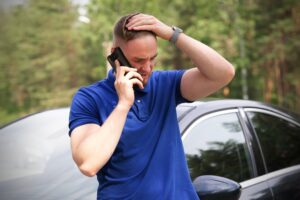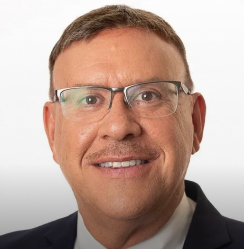
Photos, videos, and other evidence from the scene of a car accident are key. You only get one chance to gather these pieces of proof — if you do not make the most of this opportunity, you may hurt your chances of getting compensation from an at-fault party. Of course, a Philadelphia car accident lawyer may be able to help you build a compelling argument, regardless of the evidence at your disposal.
After a car accident, Demand Rand. By partnering with Rand Spear, The Accident Lawyer, you may receive best-in-class legal representation in your auto accident claim. To learn more, reach out to us.
Evidence You Should Collect After a Car Accident
You may not be able to change the fact that you were involved in an auto accident. However, you may hold an at-fault party accountable if you have sufficient evidence to show they were negligent and caused your collision. Here are pieces of evidence you can collect after your crash to help you prove negligence:
- Accident Scene Photos and Videos: These may help show what happened during your crash.
- Witness Statements: Getting statements from witnesses may provide additional proof of what occurred during your collision and further validate what you claim happened.
- Medical Records: Your medical records may help you illustrate the severity of your injury, the treatments you require, and the costs to rebound from your accident.
- Police Report: If you call 911 following your accident, police officers will get information from you and others involved, and you may request a police report that includes this information.
- Mental Health Counselor Letter: If you meet with a mental health counselor due to emotional trauma from your crash, they may be able to prepare a letter that details just how much the collision has affected your well-being.
Each piece of evidence may play a vital role in your case. Your body of proof may make it clear to a judge or jury that you are the victim of an at-fault party’s negligence. This may lead a judge or jury to award you 100% of the damages you request.

Burden of Proof in a Car Accident Case
You must provide enough evidence to show that an at-fault party was negligent. If you cannot, you may not be awarded damages. Here are the elements of negligence you must verify were present at the time of your auto accident:
- Duty of Care: An at-fault party must have a legal obligation to avoid reckless and careless acts.
- Breach of Duty of Care: This party must violate their duty.
- Causation: Because the party was reckless or careless, they caused your auto collision.
- Damages: You incurred losses as a result of the party’s actions.
Rand Spear, The Accident Lawyer, can discuss the elements of negligence and other auto crash case basics with you. If you have a valid claim, we may help you request damages before the statute of limitations for doing so expires. For more information, get in touch with us.
Preserving Evidence After an Auto Crash
In New Jersey and Pennsylvania, there is a two-year statute of limitations for personal injury claims. If you do not seek compensation within two years of your collision, you may be solely responsible for your crash-related losses. Along with this, you must preserve your evidence to ensure you may present it to a judge or jury if your case goes to trial.
An attorney may help you organize your evidence and determine the best way to present it in court. They may also work with you to gather evidence for your case during the discovery period. This window may be limited, and your lawyer may offer tips, recommendations, and resources to help you make the most of it.
Much in the way you collect evidence to support your claim, the defendant in your case may do the same. In addition, the defendant and their auto insurance company may work diligently to show that you are in some way responsible for your crash. If they succeed, you may not get any damages.

Evidence a Defendant May Try to Use
In the moments after your crash, an at-fault party may try to get you to accept some or full responsibility. For example, you may be involved in a distracted driving crash. Just minutes after your collision, the distracted driver who caused your crash may claim you were responsible or get you to accept blame in spite of the fact that they are fully at fault.
An at-fault motorist’s insurance company may contact you in the days following your collision. If this happens, it may be in your best interests not to say anything. An insurer may pressure you to take responsibility for your accident or may ask you to share your medical records, and doing either of these things may compromise your case.
The information you post on social media after your accident may impact your case. For instance, you may post photos or videos on social networks to let family members and friends know how you are recovering. The defendant in your case may be able to find these photos and videos and use them in their argument in the hopes of proving to a judge or jury that your injury is not as bad as you initially reported.

How Evidence May Lead to a Fair Settlement
When you have an abundance of evidence, it may be difficult for the defendant in your case to argue against you. This may prompt the defendant to propose a settlement. In the best-case scenario, the defendant offers you a reasonable amount of money, and you may accept it and close your case.
Just because you receive a settlement offer does not mean you have to approve it. Your lawyer may explain how much your case is worth and if they feel you may be giving up too much if you accept a settlement. If you get a settlement proposal that falls short of what you want, you may decline it, bring your case to trial, and share your evidence with a judge or jury.
Rand Spear, The Accident Lawyer, understands the value of evidence in personal injury claims. We may be able to help you gather evidence to support your auto crash case. To request a free consultation, contact us today.
Call or text (215) 985-2424 or complete a Free Case Evaluation form







